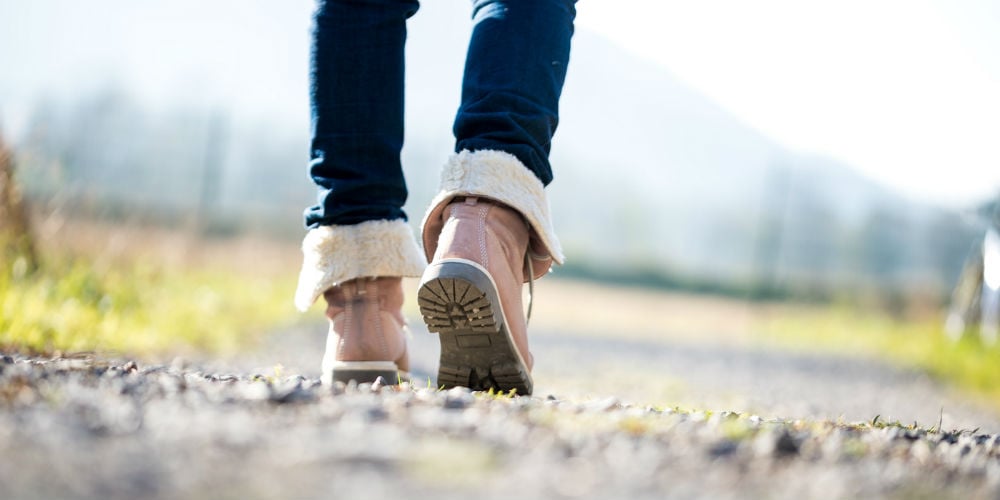Walk a mile in cruel shoes

I don’t know about you, but I’m exhausted. Our deepening economic and political divisions are toxic right now, slowly fracturing families, friendships, neighborhoods, and even the credit union space. It’s heartbreaking. I’ve found that most of the day-to-day arguments are old. But what’s new is that the divisions can be leveraged and then amplified on social media and many other influencers.
It’s human nature to make judgments based on our experiences and long-held biases. Sometimes our experiences and biases are valid. Sometimes, our experiences and biases aren’t valid. It’s that simple. Who among us can claim to have all the answers? It’s obvious from heated debates witnessed on social media that there are a lot of people who say they want an open discussion, but the reality is they don’t. Their minds have been made up and they appear to be completely closed off to listening and learning.
We live in a very challenging time. For me, it’s been a time of critical self-assessment and a reexamining of values and purpose. It’s a time of listening and empathy, finding ways to consider other people’s perspectives by walking a mile in their shoes.
Miles in cruel shoes
Walking in uncomfortable shoes is something I have experience with. During the early ’80s, I was a self-funded missionary for my church in Northern Ohio. I fell in love with Ohio, but in the beginning, northern Ohio was like a different planet compared to the small rural town in Utah where I was raised. For most of my two-year missionary experience, I had no car, bike, or public transportation in a “service area” of hundreds of square miles. I wore out multiple pairs of shoes. Some literally disintegrated off my feet.
Midway through my missionary experience, when it became time to replace yet another worn-out pair of shoes, I thought it was time to invest in a better-looking pair. My previous pair was ugly but built for lots of walking. I wanted a pair that wouldn’t embarrass me when I knocked on someone’s door or taught a lesson. After some searching, I found what I believed to be the perfect shoes: sleek, shiny, cordovan with a classic tassel. The expense depleted all of my monthly disposable cash, but they looked great! Then I discovered they were awful to wear. They fit tight. The salesperson said the leather would stretch to fit my foot; being a 20-year-old country bumpkin, how was I to know the limits of leather inelasticity?
Elder Vent, my missionary partner dubbed them the “cruel shoes.” I’m sure he grew weary (and irritated) of my hourly and daily complaints. I walked hundreds upon hundreds of long miles in the cruel shoes. It was very painful: my feet bled; the blisters were severe. It’s challenging enough for a young person to knock on stranger’s doors during the hot and humid summer in rural Ohio. The cruel shoes made it even worse.
The lesson of the cruel shoes reminds me that we make decisions for a lot of reasons (including pride – I didn’t want to look like a country bumpkin). Those decisions are based on our life experiences. Some are relevant, some are not. We cannot begin to understand another person’s perspective until we have walked at least a mile in their shoes. And for many of the people in our lives, the shoes they wear or have worn were cruel. In most instances, we weren’t aware.
The fact that I’ve publicly mentioned here that I was a missionary will elicit many judgments –some fair and some not – about my character, belief system, and world view. Let’s be honest, the idea of an LDS missionary triggered some kind of impression or judgment. It’s human nature. I continue to surprise people when they get to know me and find that we have so much in common. It’s time for all of us to carefully reexamine our biases.
A time of thought and action
We need to be very careful when we make judgments. It’s a time for serious reflection from all of us – every single one of us.
Today, many of our families, friends, neighbors, and co-workers are trying to remove the cruel shoes of inequality (economic, racial, sexual, and others). Besides creating joy, these intentional actions are also creating discord and discomfort. Some are responding to discomfort by showing empathy and doing their best to learn from others’ experiences, while others are sowing discord by discounting people’s journeys, as they aren’t aligned with their own experiences and belief systems.
Why it matters
Each of us has important choices to make. These choices will endear or alienate people who are close to us. These decisions must be aligned with our purpose and character to be meaningful and, in some cases, worth fighting for.
Our best choices will be well-thought-out, carefully considering each person or group’s journey and experiences, and not influenced by biased peer pressure or emotional knee-jerk reactions. While it’s impossible to get everyone to agree on everything, if we pursue this course, more of us will find greater common ground. This will elevate the quality of life for all of us.
As families, friends, coworkers, and even credit union leaders, we must come together and address the urgent issues of the day to find meaningful solutions, or we risk irreparable harm to important relationships and the quality of life of the teams, members, and communities we serve.
Our team at Your Credit Union Partner is responding by committing our time, energy and resources to support the CU DEI Collective. We believe it is a great way to learn about different perspectives and experiences. It’s a great way to collaborate with credit union leaders that share our values and to act collectively to make progress towards a better tomorrow.

